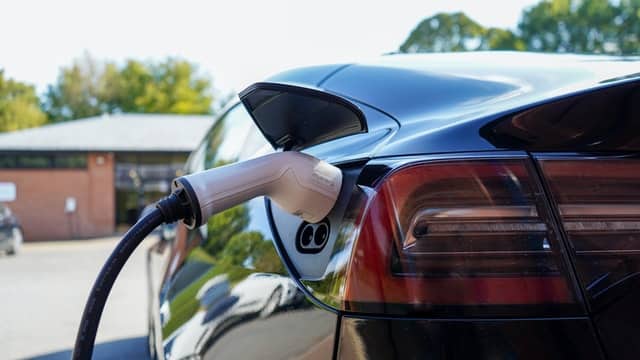We suspect that drivers of electric cars may have been unable to resist a certain feeling of smugness over the past few weeks, though the interests of personal safety have probably militated against expressing it too overtly when passing a petrol queue. And the expansion of the London Ultra Low Emission Zone on 25 October is, for some drivers, a further incentive to go electric.
Not least among the advantages is the tax treatment, most especially where the vehicle is a company car.
The availability of first-year allowances at 100% is useful – though given that the vast majority of cars are leased, the availability of tax relief for the full amount of lease rentals (rather than just 85% for most cars with CO2 emissions over 50g/km) is usually more relevant.
But the real icing on the cake is the modesty of the amount charged to tax annually on a director or employee in respect of the benefit-in-kind of an electric company car.
For the current tax year 2021/22, this is assessed at just 1% of the list price. That increases to 2% for each of the next three years. And that 1% (or 2%) charge covers all the costs incurred by the company in connection with the car except for
- Provision of a chauffeur; or
- Payment by the company of fines, penalties, parking charges etc for which the employee is personally liable
In particular, a company can provide the following benefits alongside a company car without giving rise to any additional taxable benefit:
- Insurance
- Maintenance
- Installation of a charging point at work
- Installation of a charging point at the employee’s home
- Provision of a charge card to allow access to charge points
- Recharging at work (or in other circumstances where the company has the primary responsibility for paying the supplier)
When you consider that the real value any one of those additional benefits alone (quite apart from the use of the car itself) will very often exceed 1% or 2% of the list price of the car, the extraordinary tax-efficiency of an electric company car is obvious.
Note that the 1% / 2% rate applies only to pure electric vehicles: if range anxiety persuades you to hedge your bets with a plug-in hybrid, the taxable benefit in kind (determined by the ‘electric range’) will most commonly be 11% this year and 12% for the next three years – still not bad compared with rates on petrol or diesel models, which can be up to 37%.
Although we have referred to a ‘company car’, it is more accurate to refer to an ‘employer-provided car’. The employer does not have to be a company: the same rules apply where a car is provided to an employee by a sole trader, partnership or LLP.
There is scope for tax arbitrage here. In principle, a sole trader could provide an electric car and associated benefits to an employee (a spouse, civil partner or Significant Other, for example): the employer would claim tax relief for the full amount of the costs, but the employee would be taxable only on the artificially low benefit-in-kind. Of course, it would be necessary to show that the remuneration package (including the real cost of providing the car) was commensurate with the work done by the employee. But in appropriate cases this may be worth considering.
Finally, a note on ‘salary sacrifice’ arrangements. Normally, when salary is given up in exchange for the provision of a benefit-in-kind, the amount charged to Income Tax is the higher of the value of the benefit and the salary given up. However, these ‘optional remuneration’ rules do not apply where the benefit is a ‘low-emission’ car (meaning one with CO2 emissions of 75g or less per kilometre, and therefore including all pure electric and plug-in hybrids): yet another tax nudge in the direction of ‘going electric’.
For more information, please get in touch with your usual BKL contact or use our enquiry form.







